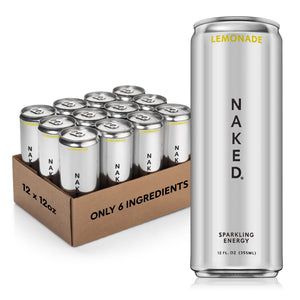If you're an athlete or fitness enthusiast, you may have considered taking creatine to boost your performance and muscle gains.
Creatine is one of the most popular and well-researched supplements for building muscle and improving athletic performance. But what happens when you stop taking it?
Keep reading to understand what creatine does in your body, the benefits of supplementation, what happens when you stop taking it.
What Does Creatine Do in Your Body?
Creatine is an amino acid that is found naturally in the muscles and brain.
It plays an important role in energy production and provides energy for high-intensity exercise, such as weightlifting and sprinting.
When you exercise, creatine stores in your muscles get depleted, which can make you fatigue easily and decrease performance.
Taking creatine increases the amount of creatine stored in your muscles, allowing you to perform better during high-intensity exercise.
It also helps to increase muscle mass and strength, improve recovery, and reduce fatigue.
What are the Benefits of Creatine Supplementation?

Many research studies over the years have supported the use of creatine supplementation.
Creatine supplementation can help to increase muscle mass and strength, especially when taken in combination with resistance training.
A number of studies found that creatine supplementation increased muscle strength by an average of 8%, and muscle mass by an average of 1.4 kg (3.1 lbs).
Creatine also helps to improve exercise performance, especially during high-intensity exercise. Another review of 61 studies found that creatine supplementation improved performance in tasks involving maximal strength, power, and sprint performance.
It may also help to reduce fatigue, allowing you to train harder and for longer. Studies show that supplementing with creatine can decrease fatigue during exercise and improve recovery after exercise.
What Happens When You Stop Taking Creatine?
When you stop taking creatine, your body slowly returns to its natural levels of creatine production.
Many people worry if they stop taking creatine they will lose the muscle gained while taking creatine. Let’s take a look at whether the evidence supports this.
Muscle Loss
While creatine can help to increase muscle mass and strength, the gains may not be permanent.
his will depend heavily on your training regimen and nutrition after stopping creatine supplementation.
When you stop taking creatine, your muscle mass and strength may gradually decrease.
This is not due to muscle loss but instead water loss. One study published in the Journal of Strength and Conditioning Research found that creatine supplementation increased total body water content by about 3 pounds, with the majority of the increase occurring in muscle water content.
You may lose some muscle, but the loss should not be significant.
Less Energy for Intense Exercise

Another thing people wonder about stopping creatine is whether they will have less energy for intense exercise.
Creatine helps to provide the energy needed for high-intensity exercise, so it's not uncommon to worry that you'll feel more fatigued without it.
The effects of creatine supplementation on energy levels are temporary, and your body will adapt to the absence of creatine over time.
One study found that supplementing with creatine increased muscle phosphocreatine content and improved performance during high-intensity exercise, but these effects were still noticeable after stopping creatine supplementation.
You could take another supplement, like BCAAs, to increase stamina for intense exercise.
Loss of Body Weight
When you stop taking creatine, you might have weight loss due to the loss of water weight that was gained during creatine supplementation.
This is because creatine causes muscle cells to hold more water, which can lead to temporary weight gain.
When you stop taking creatine, the excess water from the muscles is lost, resulting in a loss of body weight.
While this may initially be discouraging to those who are used to seeing temporary weight gain while taking creatine, it is important to remember that this weight loss is simply the loss of excess water weight and does not reflect a loss of muscle mass.
It is still possible to maintain muscle mass through proper nutrition and exercise after stopping creatine supplementation.

Can you Safely Stop Taking Creatine?
It is generally safe to stop taking creatine.
The body makes creatine naturally on its own, and studies have shown that supplementation with creatine is safe for most people when used within recommended dosages.
When you stop taking creatine, your body will simply return to normal levels of creatine production.
Can You Build Muscle Without Creatine?
While creatine is shown to be a helpful supplement for building muscle mass and improving performance, it's not the only way to achieve these goals.
Proper nutrition, a well-designed exercise program, and proper rest and recovery are all important factors in building muscle.
In fact, studies have shown that resistance training alone can lead to significant gains in muscle mass and strength, even without the use of creatine supplementation.
Does Creatine Make You Gain Weight?

Taking creatine supplements can initially cause weight gain due to water retention in the muscles, but this effect is typically temporary and not a result of actual fat gain.
Some research has even suggested that creatine supplementation can lead to a decrease in body fat percentage over time.
While creatine may cause some weight gain initially, it's not likely to cause long-term weight gain or fat accumulation.
Creatine often increases the amount of water held in the muscles, which may lead to a temporary increase in body weight.
This occurs because creatine attracts water molecules into the muscles, which can cause them to swell slightly.This effect is mostly limited to the muscles and doesn't usually result in significant overall water retention or bloating.
It is not likely that creatine will cause noticeable bloating in your body or face.
While some people may experience some puffiness in the face or other areas, this is not a common side effect of creatine supplementation.
Any bloating that does occur is likely to be mild and temporary, and should resolve once creatine supplementation is stopped.
Can You Stop Taking Creatine Supplements Forever?
You can stop taking creatine supplements forever whenever you want to.
When you stop taking creatine, your body will resume its normal production of creatine.
You may experience a decrease in strength, endurance, and performance, but this difference likely won’t be drastic.
A proper diet, structured training routine, and recovery can support your training goals even without creatine.

When Should You Stop Taking Creatine?
There is no specific cut-off or timeline for stopping creatine supplementation.
You may want to stop creatine supplementation if you experience any negative side effects or health issues related to creatine use, such as gastrointestinal distress or kidney problems.
Additionally, if you reach a point in your training where you no longer feel that creatine supplementation is necessary for your goals, you can choose to stop taking it at any time.
Conclusion
Stopping creatine supplementation is safe and can be done at any time.
You may experience a slight decrease in strength, performance, and body weight, but the impact should not be significant.
There is no set timeline for how long you can or should take creatine supplements.
It's important to be mindful of your own health and goals, and decide when to start or stop creatine use based on what is best for you.
Also Read:









